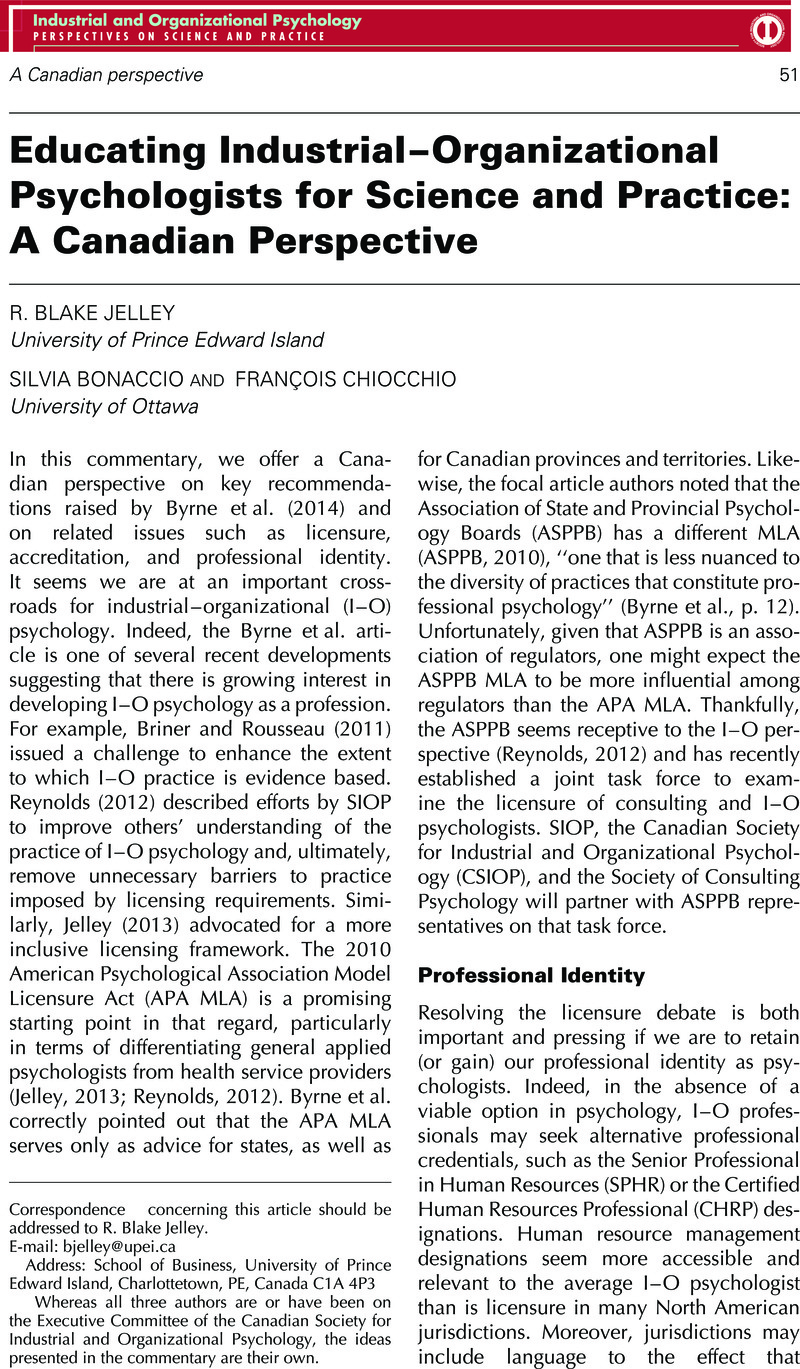Crossref Citations
This article has been cited by the following publications. This list is generated based on data provided by Crossref.
Jelley, R. Blake
2017.
The Licensure Issue in Consulting and I-O Psychology: A Discussion Paper.
Industrial and Organizational Psychology,
Vol. 10,
Issue. 2,
p.
144.
Lefkowitz, Joel
2017.
The Role of Values in Professional Licensing: The Resistance to Regulation.
Industrial and Organizational Psychology,
Vol. 10,
Issue. 2,
p.
223.



